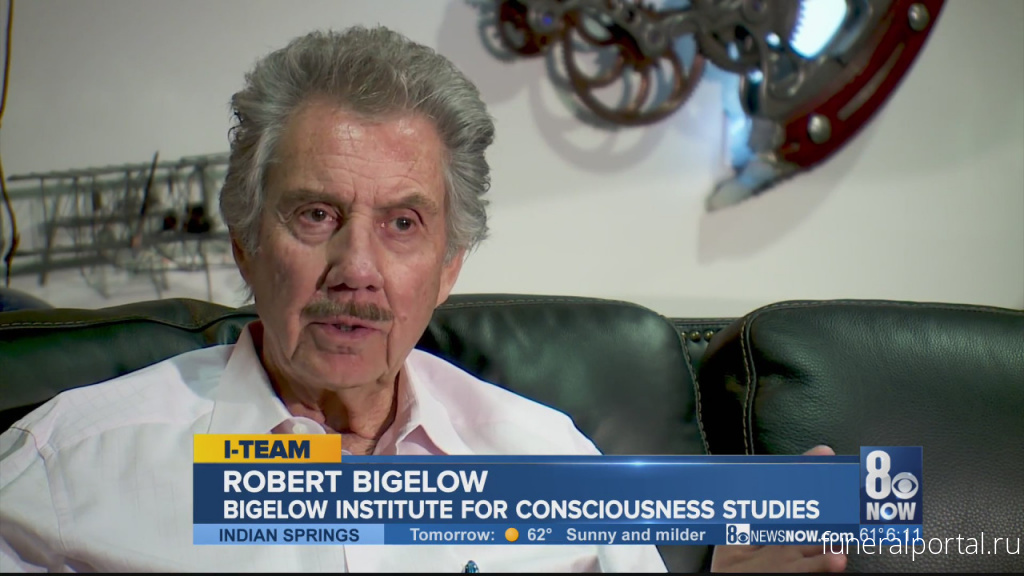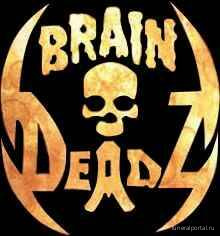Can Robert Bigelow (and the Rest of Us) Survive Death?
He’s offering nearly $1 million if you help him figure it out
What’s across the River Styx? Robert Thomas Bigelow would like to know. Wouldn’t anyone, especially now? But Mr. Bigelow is not just anyone, or any 76-year-old mourning a wife and confronting his own mortality. He’s a maverick Las Vegas real estate and aerospace mogul with billionaire allure and the resources to fund his restless curiosity embracing outer and inner space, U.F.O.s and the spirit realm.
An earlier version of this article misstated the sale price of Skinwalker Ranch. Robert Bigelow sold the ranch for about $500,000, not $4 million.
This article previously misstated the current age of Robert Bigelow. He is 76.
A version of this article appears in print on Jan. 24, 2021, Section ST, Page 1 of the New York edition with the headline
Now he’s offering nearly $1 million in prizes for the best evidence for “the survival of consciousness after permanent bodily death.”
In other words, was Hamlet right to call death an inescapable boundary, “the undiscovered country from whose bourn no traveler returns?” Or does consciousness in some form survive bodily death — what the Dalai Lama called how we merely “change our clothes”?
Is Raymond Chandler’s Big Sleep only a nap?
Mr. Bigelow believes so. “I am personally totally convinced of it,” he said.
A daunting quest, perhaps fringe to some, but the shaggy-maned and mustached entrepreneur, the sole owner of Bigelow Aerospace and Budget Suites of America, is not easily put off. He amassed a fortune to pursue his interests, including the designing and building of inflatable astronaut habitats for NASA, like his soft-sided expandable activity module called BEAM attached to the International Space Station.·
His aerospace ventures have been financed by his Budget Suites business, one of the first extended-stay rental chains, now housing some 15,000 people in three states. The profits have enabled him, he says, to sink more than $350 million into Bigelow Aerospace, “my own real black hole,” as he put it in recent phone interviews.
They have also enabled Mr. Bigelow to indulge a celebrated, if sometimes derided, interest in what he called “anomalous events” including his 20-year ownership of a spooky Utah ranch overrun by flying orbs and other creepy phenomena. The strange goings-on drew the interest of the Defense Intelligence Agency and, through funding secured by Harry Reid, the former Democratic Senate majority leader, led to the formation of a Pentagon effort to study unidentified flying objects — the Advanced Aerospace Threat Identification Program, revealed by The New York Times in 2017.
Mr. Reid called Mr. Bigelow “brilliant” and said they developed a close working relationship despite their sharp political differences; Mr. Bigelow is known as a conservative Republican with kind words for President Trump (at least until recently). Yet Mr. Reid said he had “high regard” for Mr. Bigelow: “He’s looked into areas other people only think about.”
An Exploration of Life After Death
Last June, four months after bone marrow disease and leukemia claimed the life of his wife of 55 years, Diane Mona Bigelow, at 72, Mr. Bigelow quietly founded the Bigelow Institute for Consciousness Studies to support research into what happens after death.
It set the stage for his new afterlife contest, seeking the best available evidence of survival of consciousness, with prizes of $500,000, $300,000 and $150,000 for first, second and third place. The winners will be announced on Nov. 1.
Entrants must qualify as serious researchers by Feb. 28, with a record of at least five years of study of the field and preferably an affiliation with groups like the Society for Psychical Research in Britain. Submissions of up to 25,000 words are due by Aug. 1, to be judged by a panel of specialists. Mr. Bigelow said he had an idea what that best evidence might be, but “it would be prejudicial to say.”
The Bigelows’ interest in consciousness grew after the 1992 death by suicide of their 24-year-old son, Rod Lee, father of a baby son and as-yet-unborn daughter. (That son, Rod II, grew up to struggle with drug addiction and would also die from suicide at 20 in 2011. His sister, Mr. Bigelow’s granddaughter, Blair, has worked with his aerospace and realty companies and may eventually take them over, Mr. Bigelow said.)
Seeking comfort after their son’s death, the Bigelows held sittings with the renowned medium George Anderson. Did their son make contact? “Not really,” Mr. Bigelow said, “but what I got out of the readings, I think, was that his spirit existed and that he was O.K.”
Finding few researchers seriously studying afterlife experiences, the couple in 1997 endowed the Bigelow Chair of Consciousness Studies at the University of Nevada Las Vegas with a $3.7 million gift. Charles T. Tart, a spiritually inclined transpersonal psychologist, and Raymond Moody, an author who popularized the study of near-death experiences, became the first two chairs, but Mr. Bigelow shut down the program after several years. “Sadly, we just couldn’t make enough progress in research aspects,” he said.

The empty parking lot at Bigelow Aerospace’s headquarters in Las Vegas, Nev.Credit...Andrew White for The New York Times
In 1999 he founded Bigelow Aerospace and the following year bought the license from NASA to build expandable space habitats, launching the unmanned Genesis I and II inflatable modules into orbit in 2006 and 2007.
In 2016, Elon Musk’s SpaceX sent Bigelow’s BEAM to the space station, where it is filled with sensors, but Mr. Bigelow said he had a “fantastic” new commercial purpose to reveal soon. The aerospace company, however, laid off all but about 20 of its 155 employees last March when Nevada’s governor declared it nonessential and it had to close.
After canceling his consciousness studies program, Mr. Bigelow focused on U.F.O.s, an interest dating back to 1947, a landmark year for flying saucer fever, after the crash of something still mysterious in the desert outside Roswell, N.M.
That May, when he was three, Mr. Bigelow said, his maternal grandparents, Tom and Delta Thebo, were driving down from the mountains outside Las Vegas after dark when a glowing object flew toward them, filling their windshield and terrifying them before streaking off. They were late getting back home and so shaken, Mr. Bigelow said, that “my grandfather couldn’t drive a car for a while.”
As to what may have happened to them during the missing hours, Mr. Bigelow said, “they wouldn’t talk about it.”
Mr. Bigelow has had his own anomalous experiences, including “one that I don’t talk about.” Others, starting when he was about 7, “I chalk up to just dreams,” he said. But they left an impression on a child growing up in the dawning age of rocketry and atomic test clouds in the Nevada desert. “I was totally hooked,” he said.
“When I was 12 or 13, I made a commitment to myself to really get involved in something to do with space, and something to do with U.F.O.s if I ever had the money to do it. So I made a premeditated contract to myself to get into some kind of field where I could make a lot of money.”

Inside a spacecraft repurposed as a conference room.Credit...Andrew White for The New York Times
‘There’s Things I Don’t Mind Talking About’
After studying business at Arizona State University, Mr. Bigelow followed his father into real estate, founding Budget Suites in 1987. The furnished units, rentable by the week or month, cater to low-income workers living on tips or paycheck to paycheck, a housing category that falls in a gray area of noneviction edicts during the pandemic.
The New York Times reported in December that Budget Suites had filed at least 46 eviction actions in Texas and Arizona, winning half in court. Mr. Bigelow called tenant complaints “phony” and said his company often extended financing to those needing more time to pay.
Budget Suites made him the fortune he had promised himself. (The Wall Street Journal in 1999 said he valued his real estate empire at $900 million; Forbes estimated it in 2007 at $700 million.) Today he is often called a billionaire but he dismissed specifics. “It’s not what matters,” he said. “It’s easy to say when you have the money, but it’s not everything.”
The money enabled him, however, to establish the Bigelow Foundation in 1992, collaborating with Bob Lazar, who claimed to have worked on reverse-engineering recovered extraterrestrial craft at the covert Nevada base known as Area 51. Mr. Bigelow also supported Dr. John E. Mack, a professor of psychiatry at Harvard who wrote two popular books on his experiences counseling people with credible alien abduction accounts, and Dr. Mack’s frequent collaborator Budd Hopkins, an artist turned abduction investigator who wrote his own popular books.
In 1995, Mr. Bigelow founded the National Institute of Discovery Science to study paranormal phenomena, paying $200,000 the following year for the 480-acre Skinwalker Ranch, nicknamed for the shape-shifting witches of Navajo legend and vacated by its frightened owners, Terry and Gwen Sherman.
News accounts by the Las Vegas reporter George Knapp and others reported the couple had been terrorized by giant wolves unscathed by gunshots, glowing balls that vaporized their dogs and invisible forces that mutilated cattle, leaving them bloodlessly eviscerated.
Mr. Bigelow’s investigative team, headed by Colm Kelleher, the institute’s scientific administrator and biochemist, documented their own paranormal events, according to a 2005 book, “Hunt for the Skinwalker,” by Dr. Kelleher and Mr. Knapp.
On one occasion, they write, investigators peering through night vision goggles watched an expanding tunnel of light disgorge a large hominoid creature that then walked away and disappeared. A sudden fissure in the sky seemed to open a vista onto another dimension. Cattle were found crammed into a closed trailer with no sign how they got there. And a closed-circuit video camera trained on the grounds had its wiring torn out, while another camera, focused on it, recorded nothing.
Mr. Bigelow said he saw “interdimensional” forces at play through portals at certain paranormal hot spots like Skinwalker. But he also said he had frequently visited the ranch without experiencing the kind of chilling events others reported, as if some intelligence were selecting the people to act upon.
“I slept like a log every single night,” he said. And no human was physically harmed, but he said he and other visitors often carried strange things home, like a sulfurous stink in a certain part of his house. His wife felt the presence of a faceless creature pressing down on her side of bed.
Mr. Bigelow closed down his discovery institute in 2004, replacing it with Bigelow Aerospace Advanced Space Studies which, worked secretly with the Pentagon on its U.F.O. program. The files of both organizations remain sealed to outsiders. He sold the ranch in 2016 for about $500,000 to another billionaire realty tycoon, Brandon Fugal, who has continued his own private on-site research.
“The main mysteries at Skinwalker were never solved,” Mr. Bigelow said. But he added, “Lots of things have never been made public that we have, things that I personally initiated that we have photographs of.”
Given what he called an overwhelming “preponderance of evidence,” from more than 235 people he had interviewed about their close encounter experiences, he said, “it gets silly to be dragging the dead cat up and down the alley and pretending nothing’s wrong.”
In 2017 Lara Logan asked him on “60 Minutes”: “Do you believe in aliens?” He responded, “I’m absolutely convinced. That’s all there is to it.”
Unlike consciousness, what he broadly called “E.T.” has provided physical evidence to study, Mr. Bigelow said. “Maybe you’ve been handed something that’s anomalous and it doesn’t analyze” as anything we can make, he said.
But when asked to confirm that he possessed or knew of demonstrably off-earth material, he said: “I don’t go there. There’s things I don’t mind talking about and things I do mind talking about.”
‘It May Matter What You Do While You’re Here’
He was happy, however, to discuss his new afterlife contest, details of which he was set to fill in starting late Sunday on the national nighttime paranormal radio show “Coast to Coast.” Its frequent weekend host is Mr. Bigelow’s longtime friend George Knapp of KLAS TV Las Vegas.
The panel to judge the submissions includes Dr. Christopher C. Green, a psychiatrist and neuroscientist at the Detroit Medical Center and Wayne State College of Medicine who served with the Central Intelligence Agency; Jeffrey J. Kripal, a professor of philosophy and religious thought at Rice University; and the investigative reporter Leslie Kean, the author of the 2017 book “Surviving Death: A Journalist Investigates Evidence For an Afterlife,” the basis of a six-part series on Netflix.
Mr. Bigelow said that of two “Holy Grail” questions — whether bodily death marked the end of existence and whether we are alone in the cosmos — he put survival of consciousness first, with a special moral aspect. “It may matter what you do while you’re here,” he said. “It could make a difference on the other side.”
This sounds religious, but Mr. Bigelow said he subscribed to no church or denomination, rather, a “God force.”
The two mysteries, moreover, may be somehow entwined, Mr. Bigelow speculated. “If we see a shadow going through one wall and through another, we don’t know for sure if it was a discarnate human spirit or E.T.,” he said.
One personal footnote. Don’t ask me what happened on Jan. 4 at 5:45 a.m. as I lay sleepless, wrestling with this story. A tremendous bang jolted me and my wife and the dog upright. We found the glass door to our 12th-floor terrace completely spiderwebbed with cracks as if struck with tremendous force, but there was no sign of any projectile. Invisible moisture between the double panes? Or something else? There are things I don’t mind talking about and things I do mind talking about.
Ralph Blumenthal, a staff reporter for The New York Times from 1964 to 2009, is the author of “The Believer: Alien Encounters, Hard Science, and the Passion of John Mack,” to be published by High Road Books of the University of New Mexico Press on March 15, 2021.

Las Vegas multimillionaire offers $1 million in prizes for answering the question of whether there is life after death https://www.dailymail.co.uk/news/article-9175113/Las-Vegas-multimillionaire-offers-1m-answering-life...
I-Team: Is there an afterlife? Bigelow talks the search for answers https://www.8newsnow.com/i-team/i-team-is-there-an-afterlife-bigelow-talks-the-search-for-answers/








